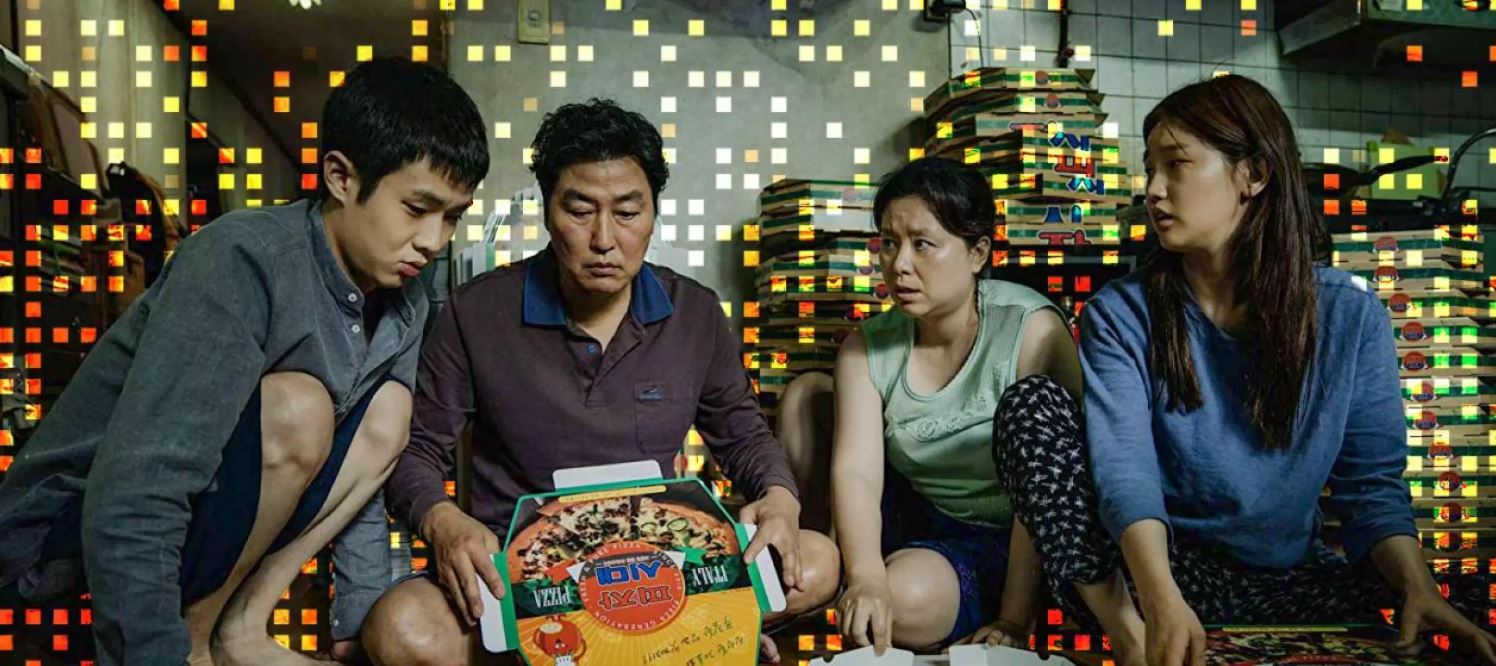Parasite, the new film from South Korean director Bong Joon-ho, examines human performances of gender, class, and identity. The film seeks to explore the illusion of a fixed social reality and, with the deft touch of one of the premiere filmmakers of the century, creates a meta-commentary on the illusion of narrative film itself. As a result, the film’s central questions—what happens when things don’t go according to plan and when the script takes a turn out of your control—provide the framework for one of the most compelling and unpredictable films of the year.
Parasite follows the Kims, a struggling, working-class family of four living in a Seoul basement apartment. The son, Kim Ki-woo (Woo Sik-Choi), finds a job as an English teacher for the daughter of an extremely wealthy family, the Parks. Soon enough, Ki-woo begins the process of replacing all the domestic employees of the Park family with his own relatives. Tensions then flare through countless twists and turns.
Parasite clearly has something to say about economic disparity in South Korea and the way powerful elites perceive the working class. It may even have something to say about the potential dissipation of cultural identity in the face of an increasingly globalized world. But the film is not that blunt; its final messages go beyond simple “rich people are bad” narratives. Bong and fellow screenwriter Han Jin-won, with the help of all around excellent performances—particularly from Song Kang-ho as the Kim patriarch and Jo Yeo-jeon as the mother of the Park family—have crafted complex characters and situations that defy easy categorization. Good and bad often blur together within expertly constructed scenes of suspense. When the narrative turns in an unexpected direction, it asks the audience to challenge the initial deception while rooting for it at the same time.
Bong seamlessly mixes genres: Parasite is essentially a home invasion thriller and political satire within the context of class warfare. Throughout his filmography, Bong has effortlessly blended political commentary with tragedy and comedy while still managing to tell original, captivating stories of family drama. He tends to intertwine undertones of comedy with very dark subject matter, and Parasite might be his funniest film to date. Everything runs smoothly in this film, not just the mixture of genres: The performers’ movements and cadences glide, and the camera drifts and cuts with such crispness that the film flows with incredible smoothness. There are entire scenes whose tension unfolds just through body gestures and camera tilts. Bong is not trying to obfuscate the plot by doing this—each cinematographic choice in Parasite is very deliberate. The performances are meant to be interpreted literally—as heightened and theatrical—to emphasize the performative facade of social distinctions. The film’s self-reflexivity acts as a mechanism to gesture towards real cultural problems.
When a film has such a confident grasp on contemporary social issues and articulates them with grace, precision, and aesthetic and narrative singularity, it is not surprising to see it receive so many accolades. Parasite was the first Korean film to win the Palme d’Or at the Cannes Film Festival. It is a pleasurable watch and can be enjoyed by casual viewers and film buffs alike.










Wow, Idk who Noah Simon is, but sounds hot af.